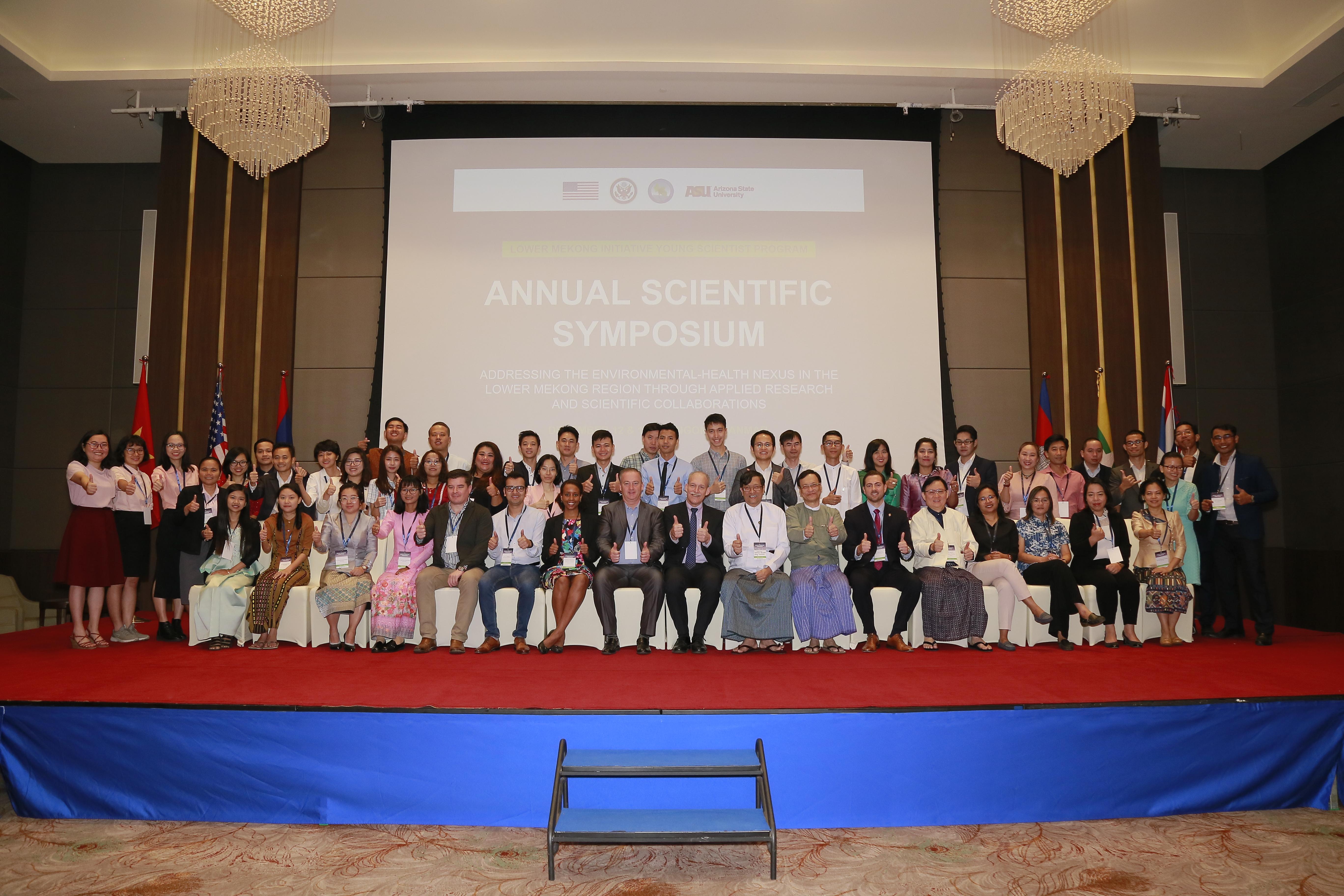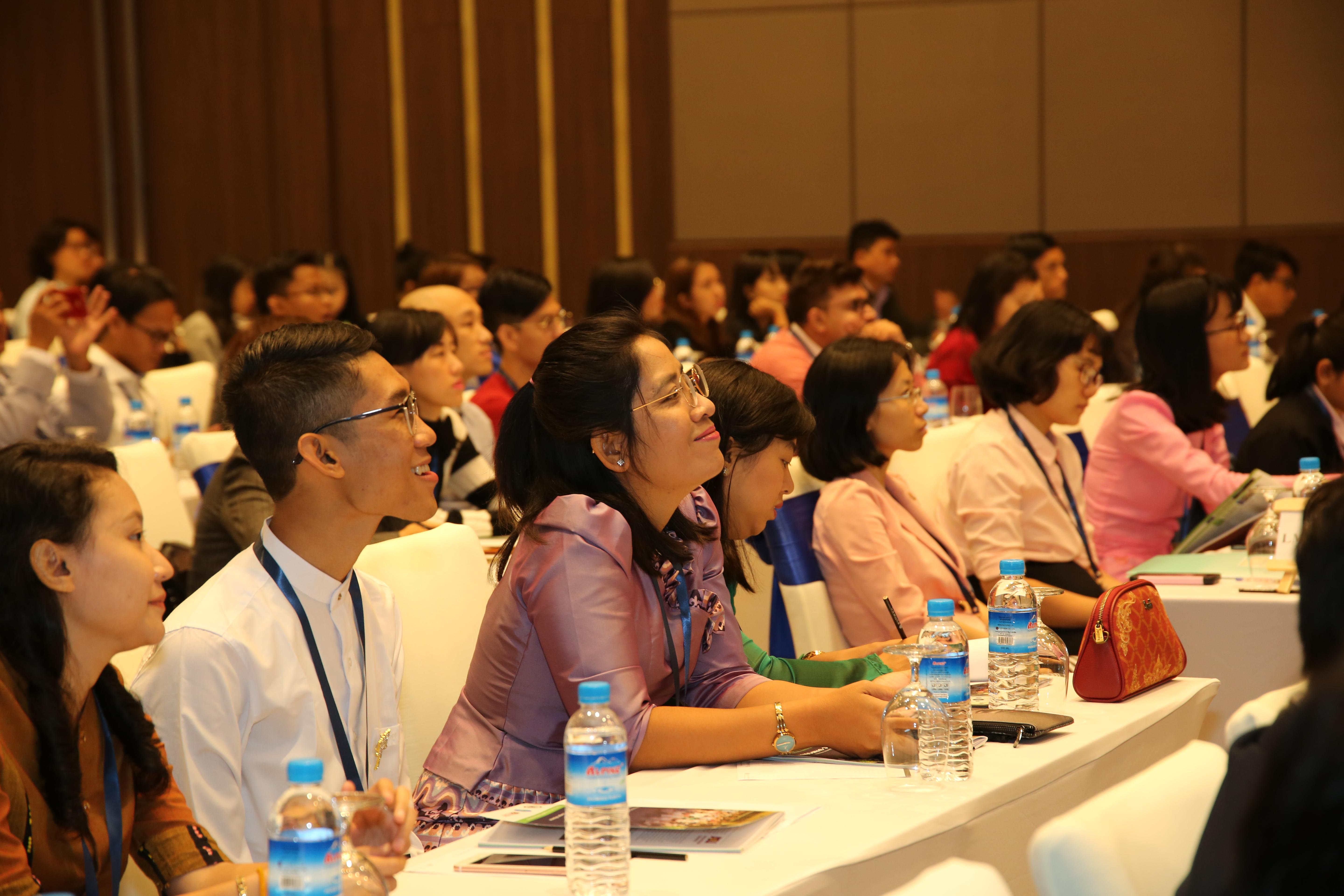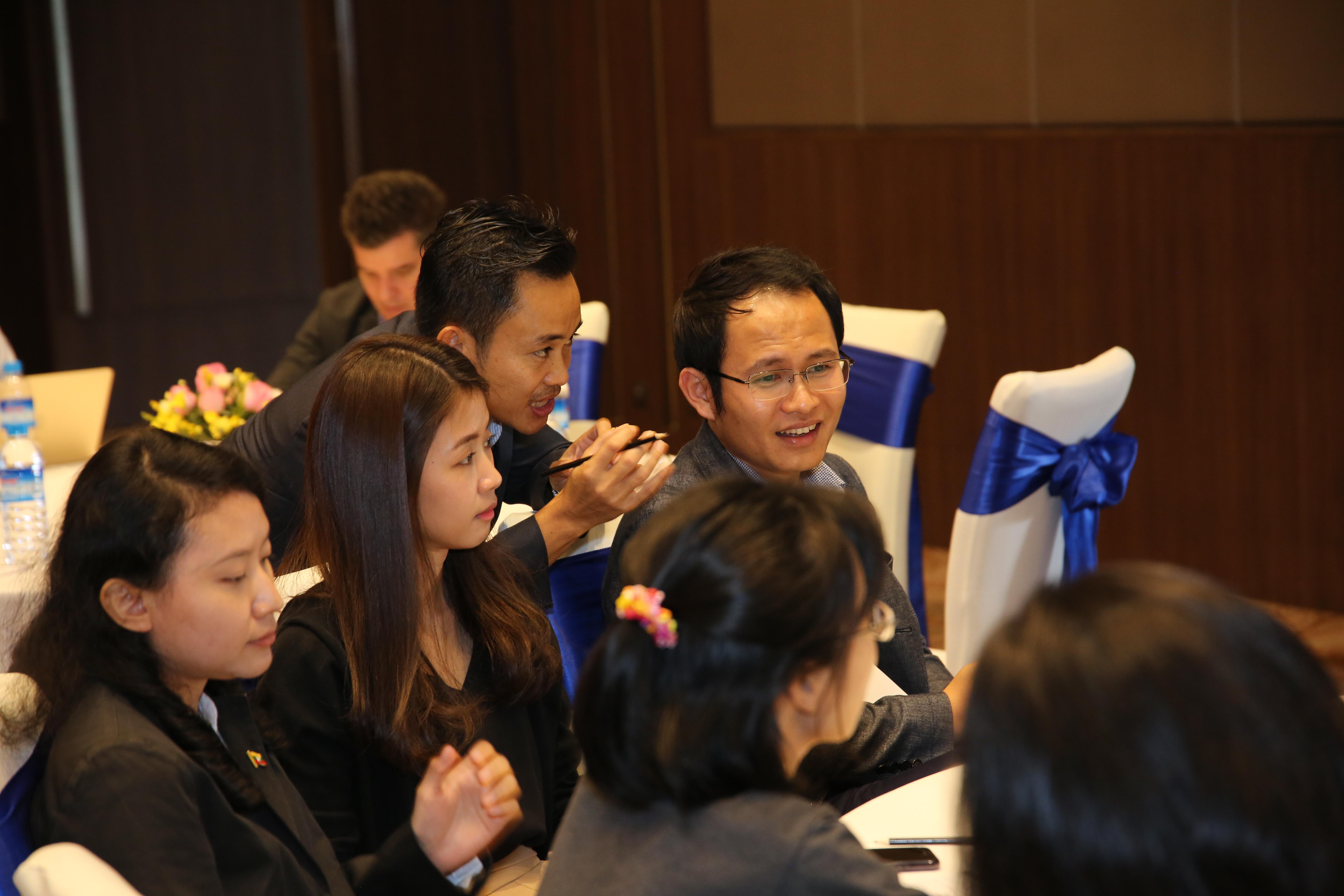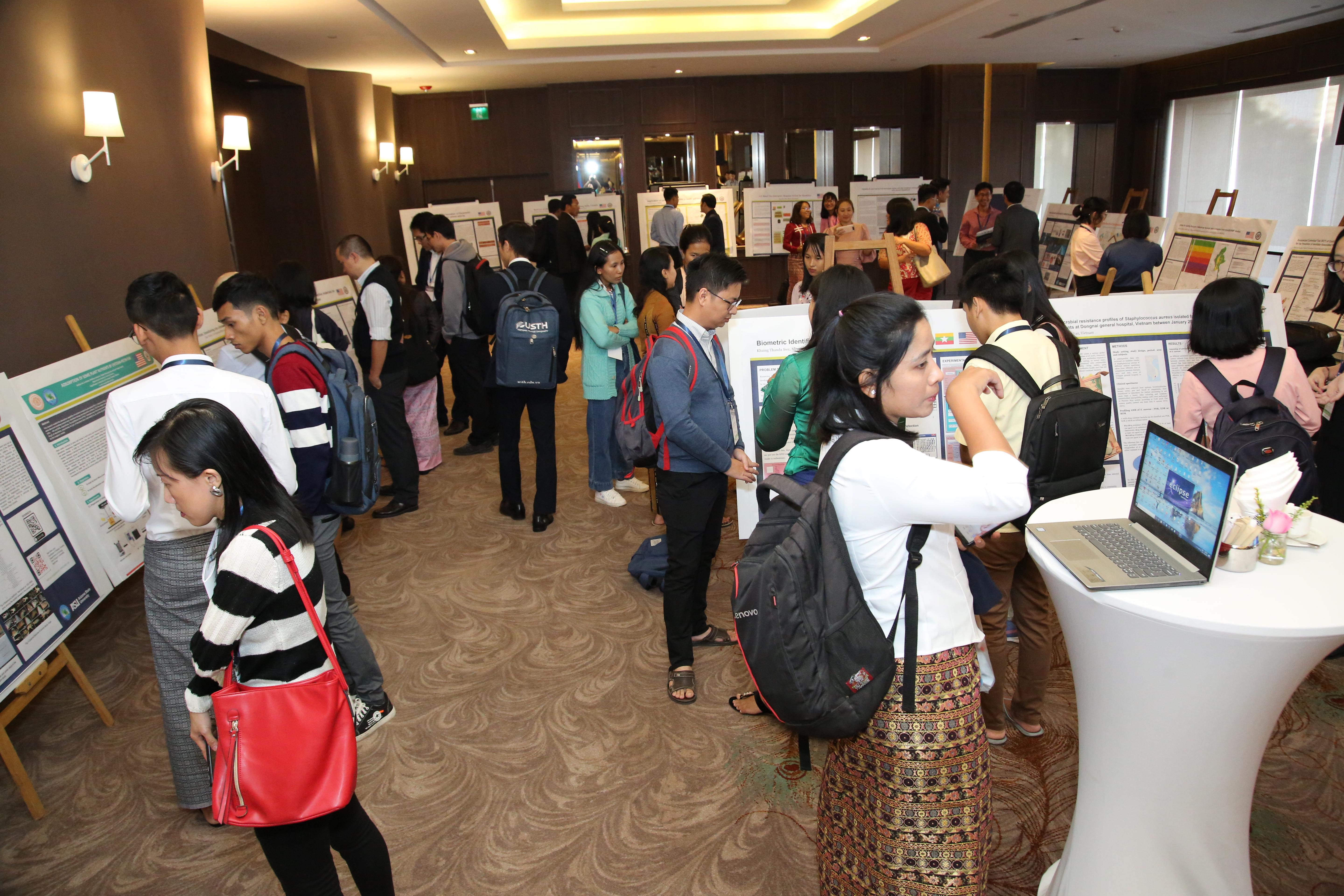
2019 Mekong - U.S. Partnership Young Scientist Program
2019 Scientific Symposium
During December 13 -14, 2019 ASU hosted the second annual symposium for the LMI Young Scientist Program at the Pullman Centrepoint Yangon Hotel in Yangon, Myanmar. The Symposium was designed to present collaborative research to improve health and environmental sustainability in the Lower Mekong region. The event was attended by over 100 researchers and scientists representing a wide range of participants from academia, industry, government, and non-profit organizations from the U.S. and the five Lower Mekong countries, including Cambodia, Lao PDR, Myanmar, Thailand, and Vietnam.

“The United States wants more young scientists from Myanmar and throughout the Lower Mekong region to work together to find innovative solutions to cross-border environmental and health challenges,” U.S. Embassy Deputy Chief of Mission George Sibley said. Together with the Ministry of Education Chairman of the National Education Policy Commission, Prof. Dr. Myo Kywe, Deputy Chief of Mission Sibley spoke during the opening session of the second annual Young Scientist Symposium on December 12.
During the Symposium, participants heard from Dr. Mahlet Mesfin, who delivered her keynote address on using science as a mechanism for diplomacy. “The universal language of science and its common pursuit of knowledge to understand the world, has great potential to build relationships, bridges, and dialogue across divides and provide solutions to addressing national and global challenges”, said Dr. Mahlet Mesfin, Visiting Scholar at the Penn Biden Center for Diplomacy and Global Engagement.

A highlight of the event was the presentation of the young scientists’ research projects through concurrent technical tracks and a poster session. Presentations included academic research projects in water, energy, health and sustainability, as well as innovative solutions to community-based projects developed throughout the summer program. These applied projects included: a dengue outbreak prediction model, an intervention optimization tool to manage outbreaks, tools to map and identify mosquitoes and diagnose dengue at an early stage, as well as education and training programs for health care staff in remote areas.

During December 14, a closed-door session was hosted for the LMI Young Scientist program participants. This session was a workshop on Planetary Health, which was facilitated by Dr. Kyi Minn, Health Advisor, Myanmar Health and Development Consortium. This introductory workshop educated participants about key linkages between global environmental change and human health and prompt them to brainstorm about potential solutions. After a general introduction to planetary health provided by the workshop moderator, participants brainstormed implications of environmental change on infectious diseases. Participants were divided into round tables and each table was assigned a role (NGO, Government, and Private Sector). The teams brainstormed about ways to address the health impact and underlying environmental factors through the lens of their assigned role, and discuss opportunities for intersectoral collaboration. A representative from each table reported back to the group on their findings and recommendations for the topic assigned.

You can also check out our visual story from the 2019 Scientific Symposium to see more about our scientist's experiences.